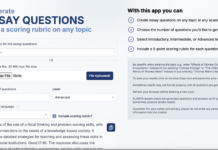The United Nations University has released what it calls a ‘sticky concepts‘ video on e-learning.
From the UNU:
If you are a newbie in the field of e-learning and you would like to find out about the idea behind a “learning management system”, the different modes of e-learning, “classroom enrichment” and “blended learning”, this short video will provide you with a short and concise introduction.
You are already an expert in e-learning? If you are working in the field of e-learning yourself and you would like to find out what UNU-ViE has to say about the paradigm shift from a teacher-centered approach to a learner-centered approach or the healthy balance between technology based learning and human interaction, the video will give you relevant insights from UNU-ViE’s perspective.
Comment
This is a basic introduction to e-learning. I have mixed feelings about the video. It is certainly a worthwhile initiative and might work for African farmers, if they have Internet access, and someone helps them find the video, but I found the Professor Ed approach condescending. It also uses a teacher-centered metaphor to ‘sell’ learner-centered teaching. I think Professor Ed is the wrong metaphor for the message. And there’s nothing about social media.
On the other hand, some may find it useful as way of explaining e-learning to the uninitiated. Let me know what you think of this video.









 Dr. Tony Bates is the author of eleven books in the field of online learning and distance education. He has provided consulting services specializing in training in the planning and management of online learning and distance education, working with over 40 organizations in 25 countries. Tony is a Research Associate with Contact North | Contact Nord, Ontario’s Distance Education & Training Network.
Dr. Tony Bates is the author of eleven books in the field of online learning and distance education. He has provided consulting services specializing in training in the planning and management of online learning and distance education, working with over 40 organizations in 25 countries. Tony is a Research Associate with Contact North | Contact Nord, Ontario’s Distance Education & Training Network.


Hi Tony,
Great critique in terms of having a teacher-led metaphor to promote a learner-centric approach.
I will recommend this video to people who are not familiar with elearning.
Hi Tony and Luc,
Sure you can critique the video as being teacher-led, but that’s the nature of video – which can be incredibly useful for the novice learner but maybe not so much for the student/learner who is more advanced in the subject. In a few moments of reflection, I couldn’t come up with a better way to introduce a subject that was more student-centered.
Tony – there’s a little bit about social media (referred to as web 2.0 in the video) but it goes by unexplained and could be fleshed out more for the intended audience.